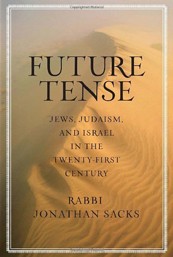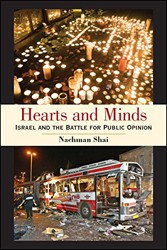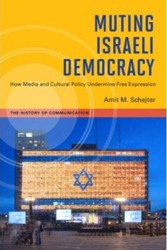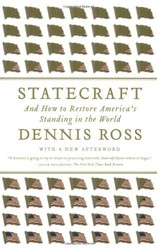Avishai, among his other credentials, is consulting editor at the Harvard Business Review, and has written for the New Yorker, and the New York Review of Books. A political economist, Avishai moved to Israel after volunteering during the 1967 War, and now resides both in Jerusalem and in Wilmot, New Hampshire. In this controversial book, written from the perspective of the political left, Avishai argues that if Israel is to remain a democracy, it must accord Israeli Arabs full rights as citizens, and at the same time loosen the grip of the Orthodox on the social and religious life of the Jewish state. Avishai deplores the fact that Israeli Arabs are second class citizens, and cites data that show that about half of non-Jewish Israelis age fifteen and over do not have a high school education as compared with one fifth of Jews. But is not the treatment of the Arabs in Israel precautionary, a result of their being a threat to the nation’s security? Potential supporters of the Palestinians? Avishai rebuts this argument and presents some fifteen reports from the Shin Bet that inform us that Israeli Arabs are not a threat to Israel but that “ignoring and under-investing in Israeli Arabs is creating a security threat.” All of these reports, Avishai notes, have been ignored. It gets worse. Elsewhere, Avishai reveals that in a 2007 poll, 60 percent of Israeli Arabs say they fear a mass expulsion, and more than 68 percent of Israeli Jews fear a civil uprising by Israel’s Arabs. In an interview with an Israeli Arab leader, Avishai is told that “if the government would give us two meters for development, we’d all be volunteering for the army,“ and “every time there is a suicide bombing I think two things: Thank God my daughter is not among the victims, and I hope there is an Israeli Arab among the victims, so they won’t blame my daughter.”
Avishai blames this situation on the Jewish nature of the Jewish state, where Jews have exclusive privileges, and non-Jews, such as its Arab population, are reduced to second class citizens. In an age of globalization, whereby Israel plays a major role in the world’s economy, it cannot afford to antagonize its economic partners by building settlements in the West Bank, and continuing to mistreat its non-Jewish citizens. His solution would entail the end of special rights for Jews as individuals, and for the disestablishment of the Orthodox rabbinate. He would also put an end to the Law of Return, which contributes to the basic inequity of the system. In its place, Avishai calls for a Hebrew Republic which would privilege Jewish national culture by maintaining Hebrew as its official language, focusing on Jewish history in the national school system, and commemorating Jewish holidays as national holidays, among his many other suggestions. His model for this is his native Quebec which was the product of a “Quiet Revolution” wherein a French majority in Quebec, but living on a largely English-speaking continent, celebrated its French culture, fostered its own educational system, and celebrated its religious and secular holidays, while the rest of Canada celebrated its ties to the English crown. Why, asks Avishai, would Israelis today not emulate such a direction, thus creating a true Federal and democratic society, while at the same time, taking action to preserve their own national culture?
There is a lot more for the reader to think about in this contentious book, including the author’s criticism of the role of the Orthodox Jewish establishment in Israel, and the politics of the Settler movement. This is a provocative book with ideas worth considering.





